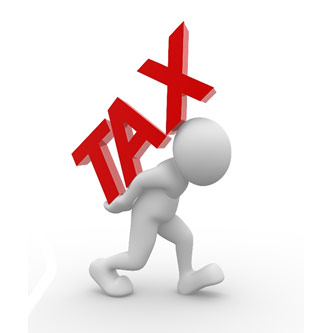At R. West & Associates, we’re often asked if the Canada Revenue Agency (CRA) will accept a proposal to settle a large income tax debt. The answer is often “yes,” as long as the proposal terms are reasonable and supportable. We’ve even helped individuals negotiate proposals when CRA was the only creditor.
 A proposal is often a better approach to resolving a hefty tax debt than going bankrupt, even though it may be complicated by a business (or former business), GST, and other tax-related issues. Here’s why.
A proposal is often a better approach to resolving a hefty tax debt than going bankrupt, even though it may be complicated by a business (or former business), GST, and other tax-related issues. Here’s why.
With a bankruptcy: If your tax debt is over $200,000 and it represents more than 75% of your total debt (tax-driven bankruptcy), your discharge must be heard by the Court. In such a case, CRA will normally oppose your discharge, and the Court then grants a Conditional Order of Discharge.
The discharge order sets the conditions and amount to be paid prior to obtaining a final discharge. The amount is primarily based on your ability to pay, the size of your tax debt, and your past efforts to deal with the debt. It is not uncommon to see conditions that increases a bankrupt’s obligations by a minimum of three more years.
Keep in mind that if the tax debt is less than $200,000 but represents a high percentage of the total debt, CRA may still oppose the discharge and seek a conditional discharge.
With a proposal: The amount negotiated through a proposal is often less than the total sum to be paid through the initial bankruptcy administration plus the conditional discharge amount. Also, if the negotiations fail and the proposal is rejected, you still have the bankruptcy option.
For a tax-driven insolvency, CRA will only accept the proposal if you satisfy some strict criteria. It is critical that all income tax filings (including GST filings, if applicable) be up to date.
CRA also considers:
- the reason(s) for insolvency and tax debt (GST, payroll remittances, director liabilities)
- the number of years of tax non-compliance (not filing or paying taxes)
- your present situation (self-employed or employed) in terms of your ability to make proposal payments and remain tax compliant going forward
- the amount you owe to CRA compared to other creditors
- past correspondence with CRA in terms of dealing with the tax issue
- your assets (including liquidity of exempt assets)
- the estimated realization pay-out to creditors compared to bankruptcy
In determining whether to accept a proposal, CRA may also review your banking records and investigate other issues that it deems to be important, such as transfers of property. If you properly lay out the issues and justify the amounts being offered, it is often possible to negotiate a reasonable and viable proposal.
If you have a large tax debt and you’re not sure if bankruptcy or a proposal is your best option, we can help. For a free assessment of your financial situation, call R. West & Associates at 604 591 7634.
